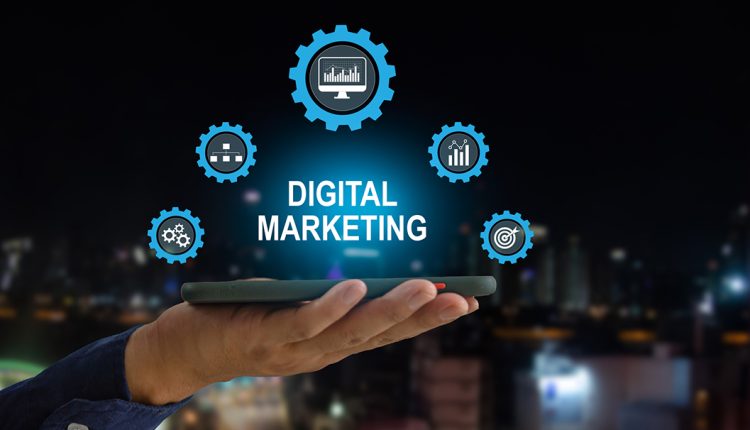
How To Learn Digital Marketing
Digital marketing is an essential strategy in the modern online world. It helps businesses grow and offers individuals the chance to build successful careers. Whether you’re just starting or looking to improve your skills, learning digital marketing can open many opportunities. The great thing is that anyone can learn it with focus and the right resources. This guide will explain the basics and steps to help you start your digital marketing journey.
1. What is Digital Marketing?
Digital marketing focuses on promoting products or services through online platforms. It includes strategies like social media campaigns, SEO, and email marketing. Businesses use digital marketing to reach their target audience effectively. Unlike traditional marketing, it offers measurable results and greater flexibility. Understanding digital marketing means learning how to connect with people online.
2. Why Learn Digital Marketing?
Learning digital marketing creates opportunities for career advancement and boosts business success. It’s a useful skill that’s in demand, with many job opportunities. Small business owners can use it to promote their products affordably. Additionally, with digital marketing constantly changing, it remains an exciting field to explore and helps you stay competitive.
3. Basics of Digital Marketing
To start a career in digital marketing, you should learn about its main components. Each aspect uses different methods and tools that you’ll need to learn. learning the basics will help you grow and improve. Start with the important terms, then explore each topic to enhance your expertise.
Step 1: Search Engine Optimization
SEO improves a website’s visibility on search engines such as Google. It focuses on optimizing content, keywords, and site structure to improve rankings. The goal is to increase organic traffic by achieving higher positions in search results. SEO requires time and thorough analysis, making it an important aspect of digital marketing for long-term success.
Step 2: Pay-Per-Click Advertising
Pay-per-click (PPC) is an advertising method where you pay only when someone clicks on your ad. Google Ads and Facebook Ads are among the most popular platforms for this strategy. It helps businesses quickly reach the right people by targeting specific audiences. To manage PPC campaigns, businesses need to manage budgets, choose the right keywords, and improve ads for better performance.
Step 3: Social Media Marketing
Social media marketing (SMM) uses platforms like Instagram, Twitter, and LinkedIn to promote businesses and brands. It’s about creating content that gets attention and engages with followers. Social media helps brands grow their visibility and build trust with their audience. Marketers can improve their strategies by analyzing how users engage with their content.
Step 4: Email Marketing
Email marketing is about sending messages directly to your audience to keep them informed and engaged. It’s an effective way to connect with your audience and highlight new products or services. These emails can include updates, discounts, or valuable content that your subscribers appreciate. It’s an affordable way to maintain customer loyalty and grow your business.
Step 5: Content Marketing
Content marketing is about providing valuable content that connects with your audience. This can include blogs, videos, infographics, and other types of content. The aim is to capture interest and keep people engaged with your content. Providing valuable content strengthens your brand builds trust and attracts loyal customers.
Step 6: Affiliate Marketing
Affiliate marketing lets you earn money by promoting products or services to an audience. When someone purchases through your referral link, you earn a commission. It works well for websites, blogs, and social media platforms. Choosing reliable brands and effective marketing strategies is essential for long-term success.
4. How to Start Learning Digital Marketing
Step 1: Set Clear Goals: Define your objectives with digital marketing. Are you focused on a career, business growth, or skill development? Clear goals will guide your learning journey. They help you focus on specific aspects and track your progress accurately.
Step 2: Use Free Resources: Use free resources like online articles, YouTube tutorials, and blogs. Platforms like HubSpot Academy and Google Skillshop offer free courses. These resources provide a great starting point for learning digital marketing basics at no cost. Start here to learn the basic concepts.
Step 3: Enroll in Paid Courses: For advanced learning, invest in paid courses from trusted platforms. Websites like Coursera, Udemy, and LinkedIn Learning offer comprehensive programs. These courses often provide certifications that add to your resume. Paid courses give you access to in-depth knowledge and expert guidance.
5. Gain Practical Experience
Step 1: Practice with Projects
Implement your knowledge through practical projects. Start a blog, manage social media accounts, or launch an ad campaign. Gaining practical experience helps you understand how digital marketing works in reality. It develops both your skills and portfolio, making practical experience essential for mastering the field.
Step 2: Use Digital Marketing Tools
Explore tools like Google Analytics, SEMrush, and Canva to enhance your skills. These tools simplify tasks such as tracking performance, researching keywords, and designing visuals. Using these tools in practice boosts your efficiency and effectiveness as a digital marketer.
6. Stay Updated
Digital marketing is constantly changing, so staying updated with the latest trends. Follow blogs, join webinars, and engage in online communities to stay updated. Engaging with other marketers can introduce you to new strategies. Consistent learning ensures you stay competitive in this ever-changing field.
7. Avoid Common Mistakes
Mistakes such as sending too many messages, overlooking data, or neglecting your audience can harm your marketing efforts. These mistakes reduce confidence and affect results. Concentrate on delivering valuable content and building strong connections. Regularly review feedback and learn from past mistakes to improve your strategy over time.
Conclusion
Digital marketing provides limitless opportunities for growth in both business and personal careers. By mastering its essential elements, you can effectively engage and reach your target audience. Starting with clear goals and utilizing free or paid resources is a great way to begin. Practical experience and staying informed on trends are critical for long-term success.